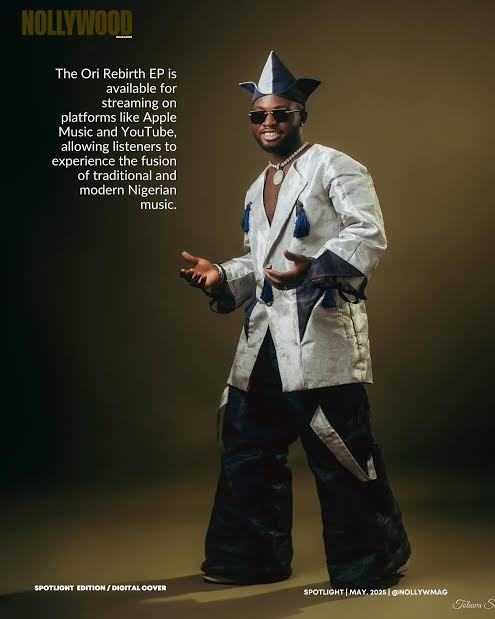 In an era where global pop culture often overshadows indigenous traditions, Khalid Ayanshina, popularly known as Beriola, has emerged as a beacon of hope for the preservation and revitalization of Yoruba heritage. His dedication to traditional Yoruba performing arts has not only kept ancient customs alive but has also inspired a new generation to appreciate and celebrate their cultural roots.
In an era where global pop culture often overshadows indigenous traditions, Khalid Ayanshina, popularly known as Beriola, has emerged as a beacon of hope for the preservation and revitalization of Yoruba heritage. His dedication to traditional Yoruba performing arts has not only kept ancient customs alive but has also inspired a new generation to appreciate and celebrate their cultural roots.
Beriola’s journey into the world of Yoruba traditional arts began early in life. An alumnus of the Federal College of Education (Special), Oyo, and currently pursuing a degree in Performing Arts and Culture at LeadCity University, Ibadan, Ayanshina has carved a niche for himself as a master of the bàtá drum dance and oríkì (ancestral praise poetry). His passion led to the founding of the Beriola Ayanshina Cultural Entertainment Troupe (BACET), a collective that travels across Nigeria, educating students about the richness of Yoruba customs through live performances and interactive sessions.
Through BACET, Ayanshina has reintroduced authentic Yoruba dance and drumming into school curriculums and community events, ensuring that children understand the significance of their heritage from a young age. His commitment extends to social media platforms such as Instagram and TikTok, where his vibrant posts and videos have gained a strong following, bringing traditional Yoruba art forms to the fingertips of youth worldwide.
 I believe that for us to progress as a people, we must first understand and embrace where we are coming from,” Ayanshina said in a recent interview. “Our culture is our identity, and it’s up to us to keep it alive.”
I believe that for us to progress as a people, we must first understand and embrace where we are coming from,” Ayanshina said in a recent interview. “Our culture is our identity, and it’s up to us to keep it alive.”
His mission aligns with the enduring themes of the 2004 Yoruba film Ori, a masterpiece that continues to resonate with audiences today.
Ori, which translates to “Head” in English, was produced, written, and co-directed by acclaimed filmmaker Muyiwa Ademola. The film delves deep into Yoruba philosophy, particularly the belief that one’s Ori—the metaphysical inner head or spiritual essence—determines the course of one’s destiny. This belief holds that while external factors may influence a person’s journey, it is ultimately their Ori that shapes their fate.
The film’s narrative follows the story of a man seeking answers to life’s many challenges by reconnecting with his spiritual destiny. Through a tapestry of compelling storytelling, traditional rituals, and thought-provoking dialogue, Ori emphasizes that true success and fulfillment can only be achieved when an individual is in harmony with their Ori.
Beyond its entertainment value, Ori serves as a cultural and spiritual guide, reminding viewers of the importance of self-awareness and destiny alignment—a message that remains profoundly relevant in today’s fast-paced, globalized
Khalid Ayanshina’s grassroots efforts and the cinematic brilliance of Ori underscore a vital truth: that Yoruba culture is not merely a relic of the past but a living, breathing tradition with wisdom and values that continue to inspire. As Ayanshina and BACET push forward with their cultural mission, and as films like Ori keep sparking conversations, the Yoruba heritage remains in safe hands—rich, resilient, and ever-evolving.
In celebrating figures like Ayanshina and revisiting timeless works like Ori, we are reminded of the power of culture to ground us, guide us, and give meaning to our collective journey.

